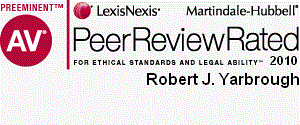Newsletter Issue 1 - March 2009
In this issue:
Registering copyrights and
trademarks with Homeland Security
Deferred examination of patent applications
Linking may be dangerous to your health
Registering copyrights and trademarks with Homeland Security
by Adam Garson
 Register Your Copyrights and Trademarks with the Department of
Homeland Security Yes, that's correct.
According to the
U.S. Customs Border Protection (CBP),
a bureau of the Department of Homeland Security,
trade in
counterfeit and pirated goods threatens America's economy, U.S.
workers, national security and the health and safety of consumers.
Register Your Copyrights and Trademarks with the Department of
Homeland Security Yes, that's correct.
According to the
U.S. Customs Border Protection (CBP),
a bureau of the Department of Homeland Security,
trade in
counterfeit and pirated goods threatens America's economy, U.S.
workers, national security and the health and safety of consumers.
Stopping the flow of counterfeit goods into the United States is an express priority of the CBP. To assist its efforts to protect U.S. intellectual property, the CBP maintains a recordation system for U.S. registered copyrights and trademarks. You can benefit from the CBP's enforcement activities by registering your trademark in its database. Registration with CBP adds another layer of protection so it's a great idea if you distribute your goods internationally.
Is registration effective? It may be. The CBP reports that its enforcement activities have successfully interdicted counterfeit goods on many occasions. In Fiscal Year, 2007, the CBP and the Immigration and Customs Enforcement Agency, seized counterfeit and pirated goods valued at more than 196 million dollars, a 26 percent increase over the same period in 2006. At mid-year FY 2008, CBP and ICE have seized fake goods with a domestic value of over $113 million, an increase of almost three percent over mid-year FY 2007. It's not clear what kinds of counterfeit goods were seized by these agencies; however, the CBP reports that with respect to safety and security risks, they seized goods that included electrical articles, pharmaceuticals, perfume, cigarettes, batteries, auto parts, food, and sunglasses. As recently as mid January, the CBP seized a shipment of counterfeit designer perfumes with a Manufacturer's Suggested Retail Price of nearly $5 million and a domestic value of more than $131,000.
Registration of your copyrights and trademarks with CBP may be done online. The fee per copyright is $190; the fee for trademarks is $190 per International Class of goods. Let us know if you wish to receive additional information about this valuable service. You can obtain direct information from the U.S. Customs Border Protection and U.S. Immigration and Customs Enforcement agencies.
Patent: Is deferred examination of your patent application right for you?
by Robert J. Yarbrough
When you file your patent application, you automatically achieve 'patent pending' status. You can mark your product as 'patent pending' and use 'patent pending' in advertising and product packaging. For some inventions, particularly consumer products, 'patent pending' status can be a valuable marketing tool and can help your product vie for attention in the marketplace. When the patent application is finally issued or denied, you lose 'patent pending' status. If maintaining 'patent pending' status is more important to you than receiving a decision from the PTO finally issuing or denying your patent, then deferred examination may be right for you.
Deferred examination is based on a little-used provision of U.S. patent law that allows the applicant to defer PTO examination of the patent application for three years from the earliest filing date of the application. Since the PTO review time for patent applications commonly exceeds two years, deferred examination can extend 'patent-pending' status to more than five years from the date of filing. Several requirements and limitations apply to deferred examination and are listed under 37 CFR §1.103(d). The current deferred examination program has been used for fewer than 200 applications since its introduction in November, 2000, and the PTO is considering expanding the deferred examination program to help ease the application review burden. For more information follow this link or contact Robert Yarbrough.
Linking may be dangerous to your health
by Adam Garson
 In our Internet-enabled world, businesses that do not operate
their own web site are the exception, not the rule. Web site owners
constantly strive to create dynamic, interesting content.
Sometimes, the courts rule they have gone too far even when the
legal ice is very thin. Slate, the online daily, recently reported
the following. A real estate web site, BlockShopper, posted this
headline: New Jones Day Lawyer Spends $760K on Sheffield. The
headline was linked to the purchaser's bio on the web site of the
prestigious Chicago law firm of Jones Day. Some weeks later,
BlockShopper ran a similar ad linking to another lawyer's bio also
posted on Jones Day's web site. When BlockShopper refused to take
down the advertisements, Jones Day sued it on a trademark theory,
alleging that viewers would be confused into believing that Jones
Day was affiliated with Blockshopper. Given that real estate
records are public records and the attorney's bio's were available
to anyone to view, BlockShopper believed that it had done nothing
wrong.
In our Internet-enabled world, businesses that do not operate
their own web site are the exception, not the rule. Web site owners
constantly strive to create dynamic, interesting content.
Sometimes, the courts rule they have gone too far even when the
legal ice is very thin. Slate, the online daily, recently reported
the following. A real estate web site, BlockShopper, posted this
headline: New Jones Day Lawyer Spends $760K on Sheffield. The
headline was linked to the purchaser's bio on the web site of the
prestigious Chicago law firm of Jones Day. Some weeks later,
BlockShopper ran a similar ad linking to another lawyer's bio also
posted on Jones Day's web site. When BlockShopper refused to take
down the advertisements, Jones Day sued it on a trademark theory,
alleging that viewers would be confused into believing that Jones
Day was affiliated with Blockshopper. Given that real estate
records are public records and the attorney's bio's were available
to anyone to view, BlockShopper believed that it had done nothing
wrong.
Trademark infringement cases often turn on the question of whether the infringing trademark has caused confusion in the marketplace. According to Slate, pundits on the issue were outraged at the lawsuit: Paul Alan Levy of Public Citizen described the lawsuit as a new entry in the contest for 'grossest abuse of trademark law to suppress speech the plaintiff doesn't like.' The digital rights groups Public Citizen, Electronic Frontier Foundation, Citizen Media Law Project, and Public Knowledge tried to file a friend-of-the-court brief asking for the case to be dismissed. The court denied them the right to file briefs and issued an injunction against BlockShopper forcing them to take down the advertisements. BlockShopper, a small company of 15 employees, faced with enormous litigation bills, took the pragmatic option and and settled the case. Litigation over linking rights have been common but usually, the plaintiff relies on copyright law to allege that the linking has infringed its rights. The BlockShopper case is the first time a Court has decided a linking issue based upon trademark law and may open the door to similar law suits. To read the full Slate article, click here.

